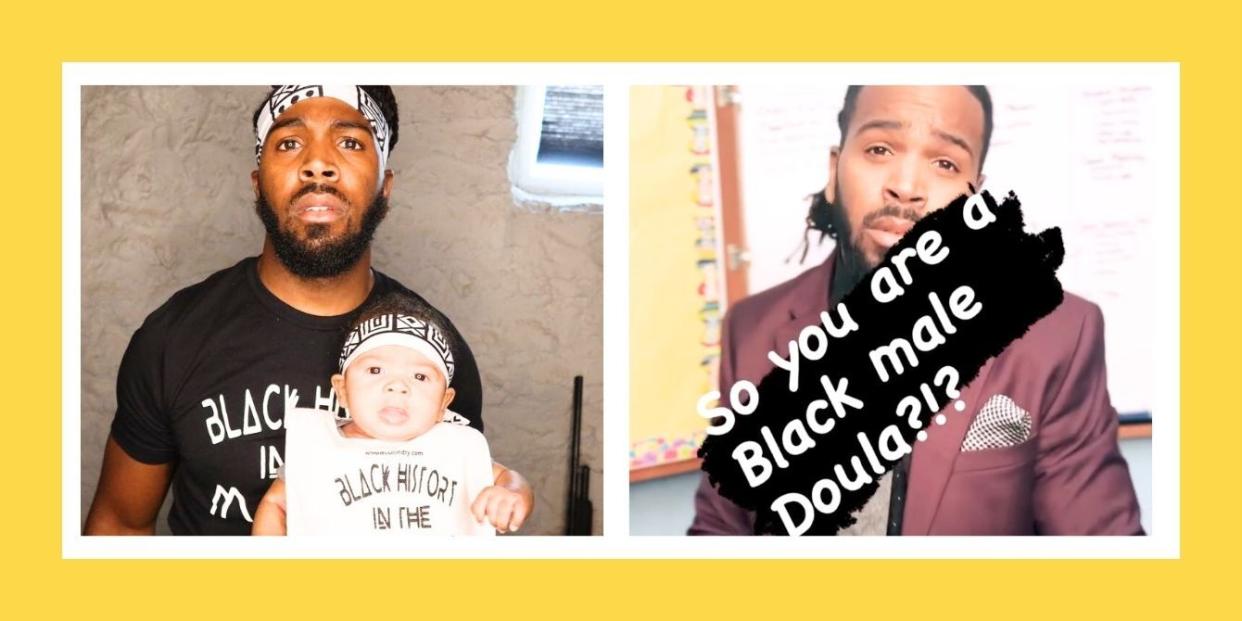Kansas City dad who became a doula is inspiring other dads to ‘step up’ during childbirth

Maybe James Hogue was always meant to be a doula. When he was in ninth grade, he witnessed his sister-in-law giving birth on his bedroom floor.
“My brother’s wife went into labor in my room while we were waiting on the EMS,” the now 35-year-old Kansas City dad told People magazine. Hogue’s mother was there to assist with the delivery. “I was like, ‘Women are amazing. Birth is amazing.'”
But it wasn’t until many years later, when he witnessed his own wife, Shunquita, going through a complicated pregnancy and delivery, that James was inspired to pursue his current career path. Seeing what Shunquita went through during her labor and delivery opened James’ eyes to the emotional and physical complications that are, sadly, much more common for Black women in the U.S.
“In that moment, things get hard and you need somebody to advocate for you, somebody there who’s going to be walking beside you,” Shunquita said. “I felt super loved and secure with him there by my side. Whatever needs I had—words, lights, music—were met. And he was my advocate in the hospital.”
Shunquita suffered from gestational diabetes and preeclampsia during her pregnancy—two high-risk complications—but James said he knew what to do because of training he had received from their doula, a lifelong friend and member of the National Black Doulas Association, Brandie Bishop Stacker.
“I was able to be the advocate for my wife because of the education I had received, so I wanted to make sure no father or young man I knew would walk through that experience uninformed,” James said.
And that’s why, after Shunquita’s delivery, James became a doula himself. It’s not a common career path for men—some estimates say that only around 6% of certified doulas in the U.S. are men, and only around 9% of doulas are Black. But as a former teacher and principal, James recognized the need for not only more Black, male doulas, but people to educate fathers about childbirth and being good dads.
“Knowing how difficult it is for Black women in particular—and the disparities are clear—I wanted fathers who are well-informed so they can be their first line of defense,” he said. “I knew we needed to step up and be present.”
According to the Centers for Disease Control and Prevention, Black women are almost three times more likely to die in childbirth than white women, even though almost all maternal deaths are preventable. And a study from the National Bureau of Economic Research showed that the risk spans socioeconomic divides—the wealthiest Black woman is at a higher risk of dying in childbirth than the poorest white woman.
Black women are at a much higher risk of many other complications, too, including gestational diabetes, preeclampsia, postpartum hemorrhage, blood clots, preterm birth and low birth weight.
James says this is why he does this work.
“If a father is trained and aware of what’s happening and knows how to advocate, we can reduce some of these disparities,” he said.


